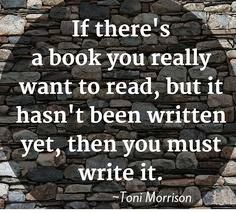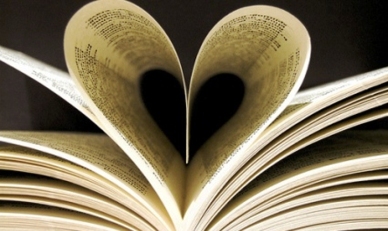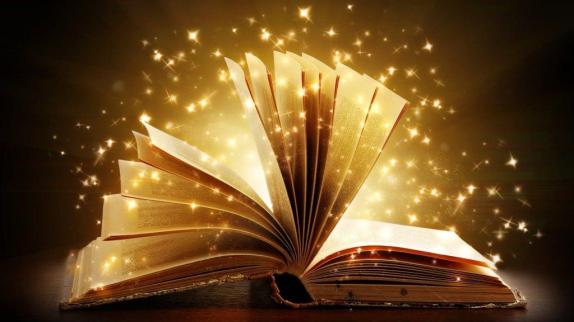When it comes to books and words and the creation and consumption of both, although I write nearly every day, I’ve always considered myself a reader first while only second am I a writer.
Of course, there is factual truth to this statement: I literally learned and continued to read stories before I started writing them (although the timing for both is close; I clearly recall writing my first “novel” in grade two).
Even now as an adult, my almost-daily reading occurs earlier in the day (dinner time) than does my almost-daily writing (after dinner, the last thing before I go to sleep).
More than anything, though, I consider myself a reader first because my reading is the fuel that powers my writing, without which I’m not so sure I’d be able to write a single sentence of story.
Having completed a recent household move in which I transported five decent-sized boxes of books, I’ve lately been pondering the way my reading habits have come to influence my writing.
A lot of writers, I’ve slowly come to discover, have a complicated relationship with other writers’ novels. Some writers I know grow intensely intimidated when they read the work of others that they deem particularly brilliant. Others can’t even stand to have books displayed in their houses while actively writing.
I myself am blessedly free from anxiety of this particular sort, and have continued to love novels since becoming serious about my writing. I may even love them more now, for I recognize how my reading has not only made me the writer I am today, but will further shape how and what I write in years to come.
The past
As a school-aged child, from at least grade 2 all the way through high school, the library (and also bookstores, although I usually didn’t have much pocket money) was my favourite place to hang out. I would always come home with armloads of fiction and devour it during my free time, which was considerable (god, I miss those days!)
Thanks to my parents, who encouraged this practice, my sister, who at age 8 taught and drilled me in how to use the dictionary, and again my parents who, for better or for worse, didn’t monitor what I was actually reading, I’ve pretty much always read above my grade level.
This has had the effect of giving me a large, strong vocabulary that is noticeable in my speech and really noticeable in my writing, to the point that I have to consciously temper myself to keep from sounding pretentious and for ease of understanding.
Beyond just learning a lot of $25 words, though, the reading I did in the past has also influenced me via the reading I didn’t do in the past.
 So much of what I’ve written and am writing and someday want to write are the stories someone else didn’t bother to write for me – the stories I want to read but don’t already exist. Or else the stories that sort of exist but didn’t end the way I wanted them to, or didn’t focus enough on the character I liked best, or didn’t take the plot in the direction or as deeply as I wanted.
So much of what I’ve written and am writing and someday want to write are the stories someone else didn’t bother to write for me – the stories I want to read but don’t already exist. Or else the stories that sort of exist but didn’t end the way I wanted them to, or didn’t focus enough on the character I liked best, or didn’t take the plot in the direction or as deeply as I wanted.
So much of what I’m writing and someday want to write is my own take on stories I really liked and thought, “I wonder if I could do that better?” Or stories I hated and thought, “I know I can do that better.”
There are, after all, no new ideas, only countless variations on the same universal themes.
The present
I know of many writers who are either unwilling or unable to read novels while at work on novels of their own, for reasons ranging from stabs of inadequacy over the skill displayed in what they’re reading to a desire to not have the voice and ideas of another bleed into their own prose.
I have no compunctions about reading while writing. Thankfully, I find a well-written story inspiring rather than debilitating – a demonstration of what I could someday become if I continue to work hard on my craft.
 And as for the ideas of others bleeding in, this is part of the reason I read in the first place.
And as for the ideas of others bleeding in, this is part of the reason I read in the first place.
Books help me journey to places I might otherwise never go to and meet people I might never cross paths with in real life. They help me perceive the world through other people’s eyes and allow my own perceptions to meld and expand and change.
Literally every single novel I read – even the much-despised Fifty Shades of Grey – gives me some idea, whether great or small, that can be used in my own writing. Even as late in the first draft of my WIP as the very last chapter, the book I was reading at the time (Khaled Hosseini’s A Thousand Splendid Suns) helped give me insight into the motivations of one of my key characters.
It’s actually become something of a game, waiting for and wondering when and where a book’s magical moment will appear for me.
The future
Bestselling horror author Stephen King is noted for stating,
You have to read widely, constantly refining (and redefining) your own work as you do so.
And also,
If you don’t have the time to read, you don’t have the time (or the tools) to write.
In the case of myself, I firmly believe this, and make a point of constantly having a novel on my nightstand (and possibly a second on my dining table as well).
Although I don’t consider myself widely-read by any stretch (I average a book a month, and only through trickery at that), I do read widely across many different genres in no pattern that even I can discern.
So far this year, I’ve read historical fiction, epic fantasy, YA, general, thriller, satire, even two capital-R Romance novels, which is a real departure for me.
I feel that by not restricting myself to a single genre, I’m likewise not restricting myself to the conventions of a single genre, thereby allowing for diverse influences, but I know I can do even better still.
There are apparently some 300,000 books published each year in North America, which is more books than I’ll ever be able to read in my lifetime. To further help me grow as a writer, I need to game my reading habits – to regularly choose books that differ from my general preferences.
I need to go beyond what’s mainstream – beyond the same types of stories by the same types of authors – to expose myself to different ideas and different styles and different ways of making words work.
And I will.
Are you a reader? If you’re writer, do you feel that reading influences your work? Let me know in the comments.
(Image source #1, #2, and #3)


Janna I hear pretty constantly the message you have eloquently put across. I read, and I often review. But I’m danged if I think any of what I’ve read fuels or informs my work. Maybe if I’d studied the subject when I was younger I’d know how to distill what I’ve read. So – when you finish a book do you consider what you’ve just read and how it might influence your writing, or is there some kind of osmosis going on?
LikeLike
I’d say it’s a little of both, Roy. I find that when it comes to craft-/technique-related influences, there is conscious consideration and deliberation that occurs. For example, my WIP is narrated in first-person. Years ago, I never used to like first-person and didn’t think I’d even know how to do it if I wanted to, so I always said I’d never write anything that way. But then then I read three or four excellent first-person novels that made me think, “Yes! I see how it’s done now, and why one would want to do it.” So it did.
When it comes to idea-related influences, though, that seems to be more subconscious … until it all at once enters my consciousness. In my WIP, I can name at least six different books that have inspired specific plot points. Not a copy and paste from those books by any means (I’ll always put my own spin on any specific idea I decide to use), but just a case of me happily reading along and then something being triggered in my head.
For example, while I was reading A Thousand Splendid Suns (I don’t know if you’ve read this), I was thinking about Rasheed, who is the abuse husband of Mariam, one of the main female characters. I was thinking about how, when they were first married, Rasheed wasn’t all that bad and actually seemed to care for her in his way. But when Mariam proved unable to give him the thing he most wanted (a son), he became violent and horrible and remained that way for years.
Reading that led me to further examine the quality and motivations of one of my own male characters, who on the surface seems like a pretty decent guy. It made me examine whether he really is decent or merely never had to endure not getting his way in something that mattered to him. My writing is loaded with insights like that that came about in the pages of someone else’s book. Do you not find the same in your own writing?
LikeLiked by 1 person
When I was younger I was a great mimic of other writers. I wrote short stories and essays that both consciously and subconsciously echoed a recent novel I’d read. Not so much any more, as I’ve found a certain authorial voice, especially in essay writing. These days I am inspired by good writing and I despair of bad. At my most perceptive (during the phd days) I could perceive errors in writing style, construction and plain old grammatical faults, and I often used to think “why did you write that sentence the way you just did?” Which of course now means I am really aware of shaping novels, editing and authorial voice. So I really really love good writing. By good writing I don’t necessarily mean eloquent writing. Some writers have lovely turns of phrases but I’m dying of boredom. Good writers keep the pages turning. There are few grammatical errors, pace is good, and they are easy to read without being simplistic or pandering to a certain audience. I think this type of writing takes real skill, and should be celebrated. Wish I had it!
LikeLike
I wish I had it too! But according to Stephen King’s quote, continuing to read and refine our work will lead us to the Promised Land, yea, it shall be done. 🙂
I definitely read differently as a writer-reader than I used to as just a plain reader. Like you, things jump out at me – not just grammar, but the underlying construction of the plot as well – however If I’m really enjoying the story, a lot of that fades to the background and maybe I’ll only notice 2 issues out of 10. (I think reading fan fiction has really helped train me out of being such an uptight writer-reader.) Good writers definitely keep the pages turning; for me, they also have a strong authorial voice and create unique and vivid mental images rather than just expressing things the way everyone else does.
LikeLike
So in agreement with you. Writing for me was definitely a result of reading seminal works. I love it when my writing shifts in tone after reading something inspiring – it usually is my most productive and experimental time to write, and I’m always fascinated by what emerges.
LikeLike
Years later, one can look back on those keys works as a timeline of his/her growth and development as a writer, don’t you find?
LikeLike
It’s pretty cool 🙂 You can’t see it at the time, but lots of neat discoveries in hindsight.
LikeLiked by 1 person
Since everything I’ve ever done musically is stolen from someone else, I doubt I’d be able to get more than a few words out if I didn’t also read.
LikeLike
I feel the same way, although I substitute the notion of “stealing” with “adapted from” or “inspired by”. All art is transformative.
LikeLike